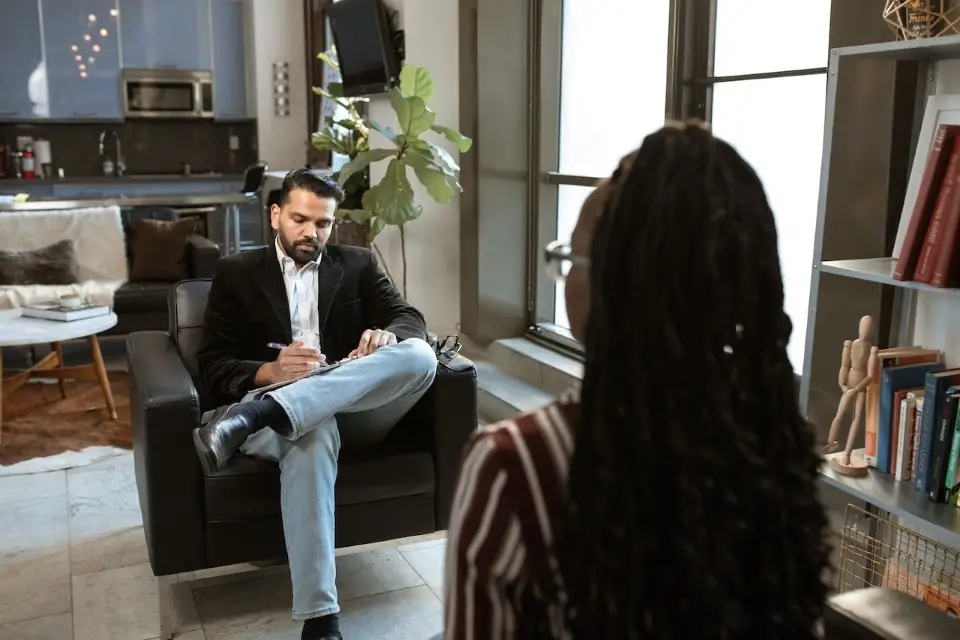Getting injured in an accident can lead to emotional distress and physical harm. Sometimes, the impact of accidents brings forth lawsuits between the injured, or plaintiffs, and those responsible for the accident, or defendants. Personal injury defense is a legal representation of the defendant in a civil lawsuit centered around resolving damages or injuries that have resulted from the defendant’s actions. In this article, we will be discussing everything you need to know about personal injury defense, from their role to what to expect from them in a lawsuit.
What is Personal Injury Defense?
Understanding Personal Injury Defense Lawyer’s Role
Personal injury defense is a legal representation of the defendant in a civil lawsuit, aimed at resolving the damages or injuries caused by the defendant’s actions. A personal injury defense lawyer, in turn, plays a critical role in the legal representation of the defendant’s clients’ interests.
As an attorney, a personal injury defense lawyer provides an effective defense strategy, exploring legal options and representing the defendant in court. An experienced personal injury defense lawyer will guide their clients in navigating the legal landscape, providing counsel to ensure the lawsuit resolves in the client’s favor.
What is Duty of Care in a Personal Injury Case?
The defendant’s personal injury defense attorney has the primary responsibility of proving that the property owner’s fault or conduct helped lead to the plaintiff’s injury. The legal term for property owner’s fault is “duty of care.” In a personal injury lawsuit, the defendant’s attorney must show that the defendant’s injury was recognized and that the defendant’s reasonable duty of care fell short, ultimately causing the injury.
Why Overstate a Personal Injury Defense?
In the case of a personal injury defense, sometimes a client may try and overstate the injuries experienced as a result of the defendant’s negligent actions. This happens in an effort to increase settlement and have higher damage awards. In such situations, the defense attorney needs to investigate the claim and ensure that the damages or injuries claimed are factual and supportable.
Why Hire a Personal Injury Defense Attorney?
Reasons to Hire Personal Injury Defense Attorney
The first reason for hiring a personal injury defense attorney is to follow the legal requirements for a defendant in a personal injury lawsuit. The attorney combines past experiences, past defense scenarios, and knowledge of the type of injury to implement an effective defense strategy. Personal injury defense attorneys are trained to prove that their clients were not responsible for the accidents and did not contribute to the injury experienced by the plaintiff.
How Can Personal Injury Attorney Help in a Lawsuit?
Personal injury defense attorneys can help in a lawsuit in various ways, including using their previous experiences as trial lawyers, knowing how to deal with frivolous cases that are filed, such as invalid or overstated personal injury claims. They can also help in investigating a claim to ensure that the injury is factual, finding medical and legal experts, witness statements, and other forms of evidence to build an effective defense for their clients.
What Should You Expect from a Personal Injury Defense Attorney?
When hiring a personal injury defense attorney, it is essential to have an understanding of their area of law and legal expectations from them. Clients should expect their attorneys to listen to their side of the story, investigate the claim or lawsuit, provide sound legal counsel, and offer experienced legal representation.
How does the Personal Injury Defense Law Firm Work?
What are the Practice Areas of a Personal Injury Defense Law Firm?
The Personal Injury Defense Law Firm is aimed at helping defendants of personal injury lawsuits. Some of their practice areas include medical malpractice, wrongful death, slip and fall, and premise liability.
How to Choose the Right Personal Injury Defense Attorney?
Choosing the right personal injury defense attorney requires considering certain factors. First, clients should review the attorney’s cases and experiences in defending similar cases. Secondly, clients should also ensure that their attorney understands their needs and concerns while providing effective legal assistance. Lastly, clients should select attorneys who provide open communications and frequent case updates.
What Happens in a Personal Injury Defense Case?
In a personal injury defense case, the defendant is responsible for proving that they were not at fault or responsible for the plaintiff’s injury. They need to provide evidence and facts that prove the plaintiff’s actions and negligence led to the injury caused, reducing the defendant’s liability.
What are the Common Personal Injury Defense Cases in Atlanta?
Truck Accident Personal Injury Defense in Atlanta
One common personal injury defense case in Atlanta is truck accidents caused by driver negligence. Personal injury defense attorneys investigate the claim and help their clients prove that the driver’s negligence contributed to the accident, which ultimately caused the plaintiff’s injury.
Premises Liability Personal Injury Defense in Atlanta
Another common personal injury defense case in Atlanta is premise liability, where plaintiffs sue the defendant property owner for the injury experienced while on their property. In such cases, the personal injury defense attorney represents the defendant, providing an effective defense to ensure the plaintiff’s negligence, and not the property owner’s fault or conduct, was the direct cause of the injury.
How to Deal with Invalid or Overstated Personal Injury Claims?
Dealing with invalid or overstated personal injury claims involves investigating and gathering evidence to prove that the injury claimed by the plaintiff is overstated, unverifiable, or not associated with the accident. The personal injury defense attorney challenges such claims and requests for dismissal or lower damage awards for their clients.
What are Your Rights as an Injured Party?
What are Personal Injury Claims?
Personal injury claims are lawsuits filed in court by an injured party against another person or entity, seeking compensation for the harm caused by the defendant’s conduct or negligence.
What are the Legal Procedures of Personal Injury Lawsuit?
In a personal injury lawsuit, the lawsuit process includes filing a claim, discovery phase, pre-trial, and ultimately, the trial. Discovery is the fact-finding phase, where the defendant and plaintiff obtain information from one another about the case.
How to Prove the Defendant’s Liability in the Personal Injury Lawsuit?
To prove the defendant’s liability in the personal injury lawsuit, the plaintiff must provide evidence and facts supporting that the defendant’s negligence or conduct caused the injury. The court will require that the plaintiff prove that the injury would not have occurred under normal circumstances and that the defendant’s mistake or negligence was the direct cause of the injury.
Personal injury defense attorneys are experienced experts in litigating personal injury cases. As discussed in this article, their role is to provide an effective defense for their clients and ensure that their clients do not bear undue liability for the accidents. If you are in need of a top personal injury defense attorney in Atlanta, feel free to review the outlined factors and choose the legal representation that best suits your needs.
Q: How do I find Top Personal Injury Defense Attorneys in Atlanta Law Firms?
A: You can conduct an online search for law firms specializing in personal injury defense in Atlanta. You can also get referrals from friends, family, or colleagues who have had positive experiences with personal injury defense attorneys.
Q: What is a personal injury lawsuit?
A: Personal injury lawsuits are legal disputes that arise when an individual sustains harm or injury due to the actions or negligence of another party.
Q: What are some of the practice areas covered by personal injury defense attorneys?
A: Personal injury defense attorneys handle a variety of practice areas, including but not limited to automobile accidents, premises liability claims, liability claims, and criminal defense cases.
Q: What is the role of a trial lawyer in a personal injury lawsuit?
A: The role of a trial lawyer is to represent the parties involved in a personal injury lawsuit. They work to establish the facts of the case, determine the legal positions of the parties, and go head to head in extensive negotiations, in order to set a damage recovery, and reduce financial liability.
Q: What is a personal injury claim, and when is it appropriate to file one?
A: A personal injury claim is a formal filing made by an injured plaintiff against a defendant or their insurance company, typically seeking compensation for specific injuries sustained due to their negligent actions. Personal injury claims are appropriate in cases where the defendant fails to meet the standard of care, or is convicted of drunk driving.
Q: What is the duty of care in a personal injury lawsuit?
A: Duty of care is a legal requirement that mandates individuals, professionals, and businesses to exercise reasonable care in undertaking activities that might result in harm to others.
Q: What are the most common types of personal injury cases?
A: The most common types of personal injury cases include automobile accidents, premises liability cases, and medical malpractice cases.
Q: Can personal injury litigation lead to invalid or overstated claims?
A: Yes, personal injury litigation can lead to invalid or overstated claims, especially where the plaintiff is attempting to inflate the extent of their injuries in an effort to increase the amount of compensation they are seeking. Defense attorneys can expose such invalid or overstated claims and protect their clients from liability.
Q: What is the process involved in defending personal injury claims?
A: The process involved in defending personal injury claims depends on the specific circumstances of each case. Generally, the process begins with extensive negotiation, and the establishment of the case facts. The parties involved then attempt to go head to head and align legal positions, while the defense falls on reasons for a case dismissal, and reduced financial liability for it’s client.
Q: What is a reasonable assumption of risk, and how does it relate to personal injury lawsuits?
A: Reasonable assumption of risk is a legal tenet that acknowledges that individuals, depending on the circumstances, understand and accept the potential risks associated with certain activities. As such, if a plaintiff has assumed a reasonable risk in relation to a given activity, and sustains an injury while engaging in that activity, the defendant may not be liable for the injury.







